#Hunt African safaris
Text

#wild#wildlife#africa#jackal#travel#animal#namibia#etosha#etosha national park#kalahari#animals#animals of africa#wildlife photography#travel photography#animal photography#safari#savannah#namibian#black backed jackal#scavenger hunt#scavenger#african animals#travel blog#travels#african
26 notes
·
View notes
Text

African wild dog. 🐶🌞🌳
#African#african wildlife#african wild dog#wild dog#wild dogs#cape hunting dog#painted dog#painted dogs#dogs#dogs of tumblr#dogs of the world#wildlife art#wildlife conservation#wildlife illustration#wildlife painting#wildlife park#maasai mara#Maasai#Maasai tribe#safari#safari animals#african safari#big ears#nairobi#kenyans#Kenya#Kenyan#tanzania#folk art painting#childrens book illustration
6 notes
·
View notes
Text
Call of the Wild: Exploring Africa Hunting Safari Packages
The vast savannas and grasslands of Africa have beckoned adventurers and hunters for centuries. This wild, untamed landscape is home to some of the world's most iconic wildlife from the "Big Five" (lions, leopards, rhinos, elephants, and Cape buffalo) to unique species like the long-spurred francolin and bongo. Africa hunting safari packages gives you a chance to encounter these animals up-close in their natural habitats. And for hunters, it offers the ultimate hunting experience pursuing dangerous game amid breathtaking scenery.
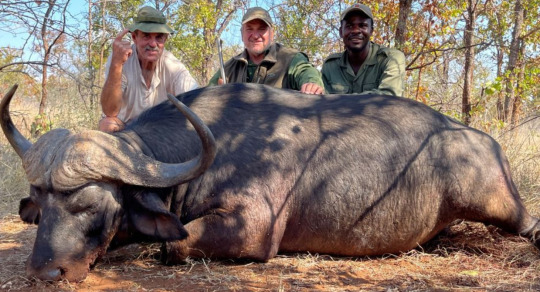
But planning an African hunting safari can be daunting for first-timers. From choosing the country and reserve to deciding on the type of hunt and securing permits, there are many factors to weigh. That's where experienced safari outfitters come in. They handle all logistics so you can focus on the thrill of the hunt. In this blog, we cover everything you need to know about booking a hunting safari in Africa. Read on to learn about popular hunting destinations, types of hunts, planning tips, top outfitters, and costs.
Types of Safari Hunting Packages
Outfitters offer several types of hunting safari Africa package. These cater to all budgets and interests from thrifty plains game hunts to "once in a lifetime" pursuits of iconic trophies.
Here are the main types of safari hunting packages:
Plains Game Hunts - Plains game refers to smaller African antelope species that inhabit savannas and grasslands. Common targets include kudu, impala, blesbok, springbok, wildebeest, zebra and many others. Plains game hunts offer great variety at a relatively affordable price point for first-timers.
Big Game Hunts - These safaris target Africa's iconic "Big Five" trophy species - elephant, lion, leopard, rhino and Cape buffalo. Hunting these dangerous game animals provides the ultimate thrill and hunting challenge. But big game hunt costs are also much higher, especially for elephants and lions.
Bow Hunting Safaris - All types of hunting safaris are also possible with bows for those interested in a greater challenge. Bow hunting is legal for plains game and big game (except elephants). It allows hunters to get even closer to their prey before taking a shot.
Most first-time African hunters start with an affordable 7-10 day plains game safari. But for seasoned hunters after dangerous big game trophies, 10-14+ day trips are best. You can also extend or combine Africa hunting safari packages as per your budget and needs.
Plan your best African safari hunts
An African hunting safari involves considerable pre-trip planning:
Pick Country & Reserve - Select your preferred hunting destination in Africa and reserve/concession area within it. Consider species sought, budget, travel time and political stability.
Choose Outfitter - Pick an experienced safari outfitter licensed in your selected country. Check credentials, reviews, services offered and costs. Ensure they have excellent professional hunters and trackers.
Trip Duration - Plan trip duration as per species you want to hunt and your budget. Plains game hunts can be as short as 7 days. But big game and unique trophies require longer 14+ day safaris.
Permits & Licenses - Acquire all necessary hunting permits, licenses and export paperwork with the help of your outfitter. Rules vary across African countries.
Immunizations - Visit your doctor and take recommended vaccinations for Africa like hepatitis, tetanus, yellow fever etc. Entry rules may require proof of certain shots.
Insurance - Get travel insurance covering emergency medical evacuation, trip cancellation, lost baggage etc. Evacuation coverage is essential for remote hunting areas.
Gear List - Prepare a complete hunting gear and equipment list including weapons, ammo, optics, clothing, boots, travel documents and more. Your outfitter can provide a checklist.
Physical Fitness - Follow a fitness regimen before your trip. Hunting dangerous game can be physically demanding even with vehicle support.
With the logistics handled by your outfitter, you can look forward to the adventure ahead. Just focus on marksmanship practice and gear preparation.
How to Choose an Outfitter for Your Hunt
Choosing the right safari outfitter is crucial for a successful hunt. Here are tips for picking an ethical, professional hunting outfitter in Africa:
Check accreditation by hunting associations to ensure they follow fair chase policies and safety protocols.
Inquire about specific hunting areas they have concessions/leases for. The best territories harbor good populations of target species.
Ask about number of years in business, professional hunter experience, trackers employed etc. Look for expertise specific to your hunt.
Review past client testimonials and photo galleries to gauge delivery quality. Personal references from prior clients are best.
Compare services offered in packaged rates like field prep of trophies, taxidermy, dip & ship, daily laundry, liquor costs and more.
Ensure they have necessary permits and licenses to hunt species you seek. Also check on their protocol for trophy export and shipping.
Evaluate total costs across services. Look for transparency - some lower base rates may hide extra charges.
Assess level of personal service and communication responsiveness. This gives a feel for their professionalism.
It's advisable to contact 3-4 outfitters for quotes and details before you book a hunt.
Ready For Adventure?
Few adventures can get your heart racing like finding yourself face-to-face with Africa's wild icons like lions, elephants and Cape buffalo! Planning an African hunting safari is the first step towards making this dream a reality. Follow our tips to identify top destinations and outfitters for an epic trip pursuing your dream trophies. Just be sure to prepare thoroughly before embarking on a safari.
So when are you going on safari? Most outfitters book hunts 6-12 months in advance, so start planning today!
0 notes
Text
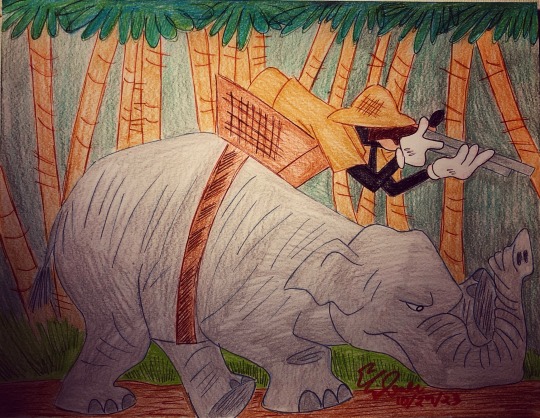
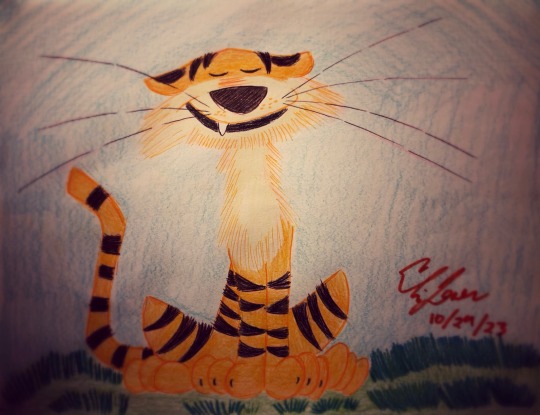




🐯 Towards the end of August, I had been working on rough studies I based on model sheet drawings by Bill Peet for the 1945 Goofy short “Tiger Trouble”. In “Tiger Trouble”, Goofy, in the role of a hunter accompanied by an elephant, hunts a tiger in a jungle which leads to comical results. The scrawny tiger was the first of three Disney animated tigers animated by Milt Kahl. Kahl would later design and animate Shere Khan in “The Jungle Book” and Tigger in the “Winnie the Pooh” featurettes. After putting this project aside for months, I wanted to share with you all what I worked on this afternoon. 🐾🐘🐯
http://andreasdeja.blogspot.com/2014/06/milt-kahls-tigers.html?m=1
#Goofy#Tiger Trouble#Disney fanart#character studies#tiger#elephant#Tiger Trouble 1945#African Diary#African Diary 1945#Walt Disney#Bill Peet#Milt Kahl#Eric Larson#John Sibley#Claude Coats#jungle#hunting#safari#India#Africa#1940s cartoons#big game hunting#elephant vs tiger#Louie the Mountain Lion#Raja the Tiger#scrawny tiger#Goliath II#Milt Kahl characters#Dolores the Elephant#Goofy Goof
0 notes
Text
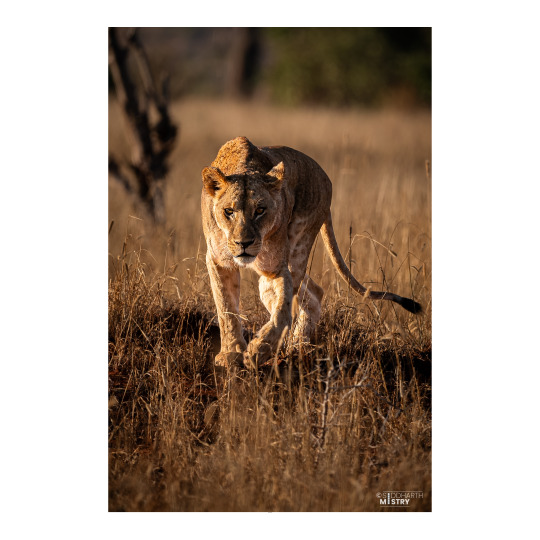
🦁🔍 The Lioness's Calculated Gaze 🌿👁️
In the heart of Tsavo National Park, we were privileged to witness a remarkable moment of strategy and determination. The lioness, with eyes locked on her prey, knew it was time to plan her move.
#wildlife photography#nature photography#tsavo national park#moments in time#lionesses#tsavo tales#lioness hunt#african safari#safari adventure#wild life wonders#into the wild#safari goals#wild encounters#lioness gaze#wilderness adventures#awe inspiring#beauty of nature#sony alpha#sony a7iv#sigma lens#kenya safari tours#nature at its finest
1 note
·
View note
Text

Dave Sim & Gerhard: Form & Void (2001)
1 note
·
View note
Text
In recent years, the Tanzanian government has forcefully evicted Masai communities in the north of the country from their ancestral land to make way for conservation and tourism. Around 70,000 people are thought to have been affected. The government plans to lease the UAE-based safari company Otterlo Business Corporation (OBC) land to create a wildlife corridor for trophy hunting and elite tourism.
Meanwhile, in Liberia, exclusive rights to over 1 million hectares of forest – about 10 per cent of the country’s total land area – could be conceded to a private Emirati company, Blue Carbon, as part of a draft deal. The scheme would see protected forests created in order to generate carbon credits to be sold on voluntary markets or traded between Liberia and other governments, allowing polluting countries or businesses to ‘offset’ their emissions. Blue Carbon has similar deals in Zambia and Zimbabwe.
Aissatou Keita, a member of the National Platform of Actors for Climate Justice in Senegal, has described these projects as generating ‘rights to pollute’ for industry. ‘It is clear that carbon projects are put in place by polluters to continue their devastating activities and to restore their image,’ she writes.
154 notes
·
View notes
Text
Title: "Exploring African Hunting Culture: Traditions, Challenges, and Conservation
Introduction:
African hunting culture is a rich and diverse tapestry that weaves through the continent's history, ecology, and societies. Rooted in centuries-old traditions, it encompasses a wide range of practices, from subsistence hunting for survival to trophy hunting as a sport. This article delves into the multifaceted world of African hunting culture, highlighting its cultural significance, the challenges it faces, and the ongoing efforts for conservation.
A Rich Tapestry of Traditions:
Africa is home to a vast array of ethnic groups, each with its own unique hunting traditions. These practices are deeply intertwined with local customs, beliefs, and spirituality. For many indigenous communities, hunting is not just a means of acquiring food but a vital cultural expression. The use of traditional hunting tools and techniques, like spears, bows, and traps, continues to be an essential part of their heritage.
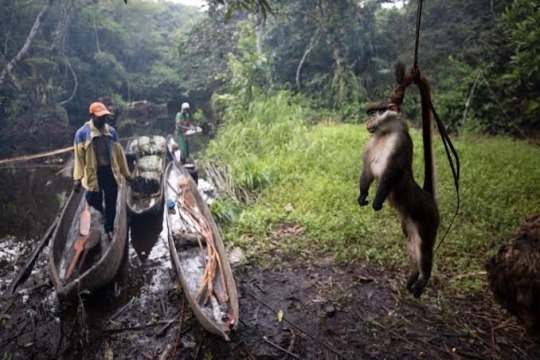
Subsistence Hunting:
Subsistence hunting is a common practice across the African continent. In rural areas, where access to commercial sources of food may be limited, hunting provides a vital source of protein and sustenance. Communities rely on their knowledge of the land and wildlife to harvest game responsibly, ensuring the sustainability of their resources. This balance between nature and necessity underscores the importance of respecting wildlife for survival.
Trophy Hunting:

Trophy hunting, a more controversial aspect of African hunting culture, involves the pursuit and killing of animals for sport and the collection of trophies, such as horns or skins. While it can generate revenue for local communities and conservation efforts, it has also faced criticism for ethical and conservation reasons. Many African countries have implemented strict regulations to manage and monitor trophy hunting to mitigate negative impacts on wildlife populations.
Conservation Challenges:
African wildlife has faced significant challenges due to habitat loss, poaching, and the illegal wildlife trade. The intricate relationship between hunting culture and conservation is evident in the struggle to protect endangered species while acknowledging the cultural importance of hunting. Conservation organizations work tirelessly to strike a balance by implementing measures to protect threatened species and their habitats.
Modern Influences:
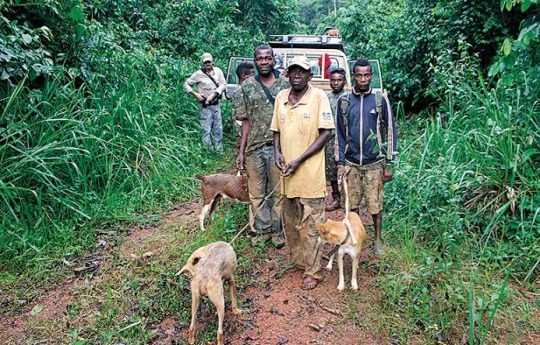
In the modern era, African hunting culture has been influenced by global forces. Tourism, including wildlife safaris, has become a booming industry, providing alternatives to traditional hunting practices and contributing to conservation efforts. Additionally, changing perceptions of hunting, both locally and globally, have prompted a reevaluation of hunting practices and their impact on ecosystems.
Conservation Efforts:
Across the continent, initiatives to conserve African wildlife are gaining momentum. National parks, reserves, and private conservancies play a crucial role in safeguarding habitats and species. Anti-poaching efforts, community-based conservation programs, and responsible hunting practices have emerged as essential strategies to ensure the sustainability of African ecosystems.
African hunting culture is a multifaceted and evolving aspect of the continent's heritage. While it carries deep cultural significance and provides for many communities, it also faces challenges related to conservation and ethical considerations. Striking a balance between cultural preservation, sustainability, and responsible hunting practices is an ongoing process, guided by a commitment to protect Africa's remarkable biodiversity for generations to come.
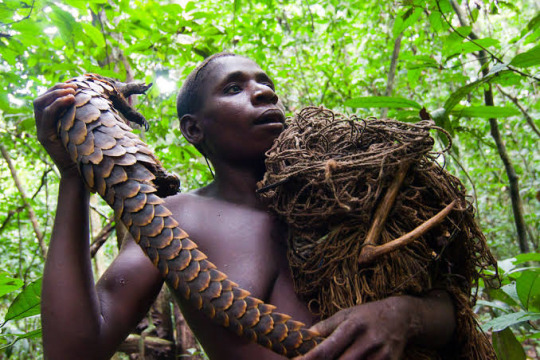
Hunting practices among African tribes vary widely depending on the specific region, culture, and available resources. Traditional hunting methods are often passed down through generations and are adapted to the local environment and the animals being pursued. Here are some common hunting techniques employed by various African tribes:
1. **Spear Hunting:** Spear hunting is one of the oldest and most widespread hunting methods in Africa. Tribes such as the Maasai in East Africa are known for their skill in using spears to hunt animals like lions and giraffes. This method requires getting close to the prey and using a well-aimed throw or thrust to kill it.
2. **Bow and Arrow:** The use of bows and arrows is prevalent among many African tribes. The San people, for example, are known for their exceptional tracking skills and proficiency in hunting with poisoned arrows. This method allows hunters to maintain some distance from their prey.
3. **Traps and Snares:** Various tribes set up traps and snares to catch small to medium-sized game. These can be constructed from natural materials like branches, vines, and ropes. When an animal triggers the trap, it captures the prey.

4. **Pitfalls:** Some tribes dig pits and cover them with branches and leaves to create pitfalls for animals. Once an animal falls into the pit, it becomes trapped and can be killed by the hunters.
5. **Hunting Dogs:** In some regions, like the central African rainforests, tribes use hunting dogs to track and corner prey. The hunters then finish the job using spears or other weapons.
6. **Blow Darts:** Certain tribes, like the Pygmies in Central Africa, use blow darts with poison-tipped tips to silently kill small game and birds.
7. **Net Hunting:** Nets are used by several tribes to encircle and capture birds, small mammals, and even fish in rivers and lakes. The nets can be set up in a variety of ways to suit the hunting environment.
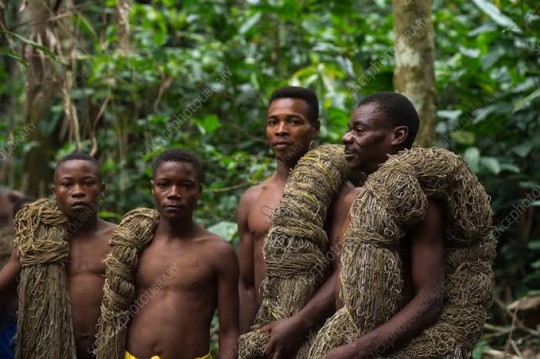
8. **Hunting with Falcons and Other Birds of Prey:** In some North African and Middle Eastern regions, including parts of Morocco, hunting with trained falcons and other birds of prey is a long-standing tradition, though not exclusive to Africa.
9. **Cultural and Spiritual Practices:** For many African tribes, hunting is not just about acquiring food but is deeply intertwined with cultural and spiritual beliefs. Rituals and ceremonies often accompany hunting expeditions to seek blessings or guidance from ancestors or spirits.
It's important to note that as African societies have modernized, some traditional hunting practices have given way to more contemporary methods and conservation efforts. Many African countries have implemented wildlife protection laws and sustainable hunting practices to ensure the survival of their native fauna and the preservation of their cultural heritage.

#life#animals#culture#aesthetic#black history#history#blm blacklivesmatter#anime and manga#architecture#black community#hunting
48 notes
·
View notes
Text
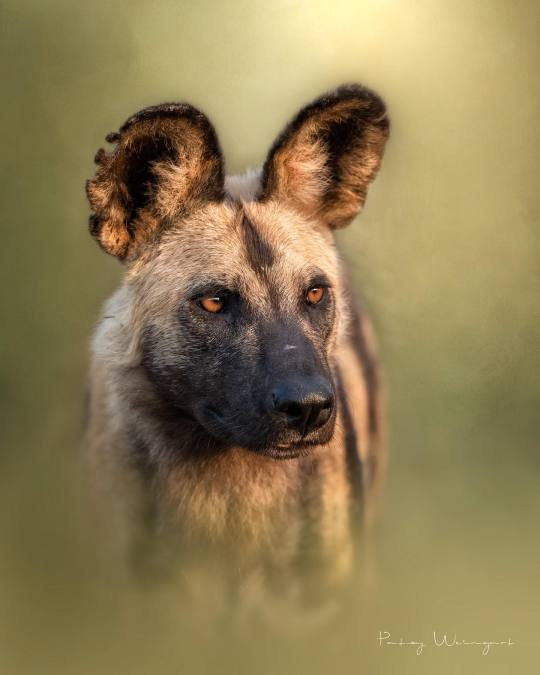

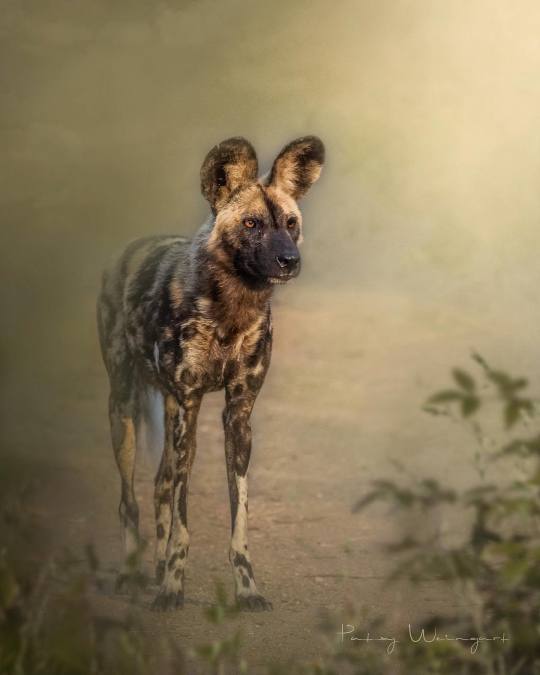
" The African wild dog " //© Patsy Weingart
AKA as Cape hunting dog, painted dog or just plain “the dogs.” Frequently the true African safari aficionados will select reserves that will increase their chances of seeing these very successful predators hunt. They work as a pack to exhaust their prey.
#Okavango Delta#Botswana#nature#landscape#wildlife#African Dog#Wilderness#Safari#Savannah#aesthetics#wanderlust#explore#follow#discover
65 notes
·
View notes
Text
NEW YORK (AP) — The National Rifle Association and its former longtime leader were found liable Friday in a lawsuit centered on the organization’s lavish spending.
The New York jury found that Wayne LaPierre, who was the NRA’s CEO for three decades, misspent millions of dollars of the group’s money on pricey perks, and it ordered him to repay the group $4,351,231. Jurors also found that the NRA omitted or misrepresented information in its tax filings and violated New York law by failing to adopt a whistleblower policy.
LaPierre, 74, sat stone-faced in the front row of the courtroom as the verdict was read aloud. The jury actually found him liable for $5.4 million, but it determined he’d already paid back a little over a million.
The verdict is a win for New York Attorney General Letitia James, a Democrat who campaigned on investigating the NRA’s not-for-profit status. It is the latest blow to the powerful group, which in recent years has been beset by financial troubles and dwindling membership. LaPierre, its longtime face, announced his resignation on the eve of the trial.
NRA general counsel John Frazer and retired finance chief Wilson Phillips were also defendants in the case. Phillips was ordered to pay $2 million in damages to the NRA. Frazer, meanwhile, was found to have violated his duties, but was not ordered to pay any money.
The penalties paid by LaPierre and Phillips will go back to the NRA, which was portrayed in the case both as a defendant that lacked internal controls to prevent misspending and as a victim of that same misconduct.
James also wants the three men to be banned from serving in leadership positions at any charitable organizations that conduct business in New York. A judge will decide that question during the next phase of the state Supreme Court trial.
Another former NRA executive turned whistleblower, Joshua Powell, settled with the state last month, agreeing to testify at the trial, pay the NRA $100,000 and forgo further involvement with nonprofits.
James sued the NRA and its executives in 2020 under her authority to investigate not-for-profits registered in the state.
She originally sought to have the entire organization dissolved, but Manhattan Judge Joel M. Cohen ruled in 2022 that the allegations did not warrant a “corporate death penalty.”
The trial, which began last month, cast a spotlight on the leadership, organizational culture and finances of the powerful lobbying group, which was founded more than 150 years ago in New York City to promote rifle skills and grew into a political juggernaut that influenced federal law and presidential elections.
Before he stepped down, LaPierre, had led the NRA’s day-to-day operations since 1991, acting as its face and becoming one of the country’s most influential figures in shaping gun policy.
During the trial, state lawyers argued that he dodged financial disclosure requirements while treating the NRA as his personal piggy bank, liberally dipping into its coffers for African safaris and other questionable expenditures.
His lawyer cast the trial as a political witch hunt by James.
LaPierre billed the NRA more than $11 million for private jet flights and spent more than $500,000 on eight trips to the Bahamas over a three-year span, state lawyers said.
He also authorized $135 million in NRA contracts for a vendor whose owners showered him with free trips to the Bahamas, Greece, Dubai and India, as well as access to a 108-foot (33-meter) yacht.
LaPierre claimed he hadn’t realized the travel tickets, hotel stays, meals, yacht access and other luxury perks counted as gifts, and that the private jet flights were necessary for his safety.
But he conceded that he had wrongly expensed private flights for his family and accepted vacations from vendors doing business with the NRA without disclosing them.
Among those who testified at the trial was Oliver North, a one-time NRA president and former National Security Council military aide best known for his central role in the Iran-Contra scandal of the 1980s. North, who resigned from the NRA in 2019, said he was pushed out after raising allegations of financial irregularities.
After reporting a $36 million deficit in 2018 fueled largely by misspending, the NRA cut back on longstanding programs that had been core to its mission, including training and education, recreational shooting and law enforcement initiatives. In 2021, it filed for bankruptcy and sought to incorporate in Texas instead of New York, but a judge rejected the move, saying it was an attempt to duck James’ lawsuit.
Despite its recent woes, the NRA remains a political force. Republican presidential hopefuls flocked to its annual convention last year and former President Donald Trump spoke at an NRA event earlier this month — his eighth speech to the association, it said.
17 notes
·
View notes
Text
On a recent drive, I was telling my guests about the Ntsevu Breakaways, who have been living a nomadic life since leaving their pride at the end of 2021. Despite being relatively young lions, from the start they have been incredible at successfully hunting buffalo. We got onto the topic of their fathers, the Birmingham Males, and reminisced on how incredible, and well-known, the coalition was at also hunting buffalo. I wondered out loud if there was any correlation in the “buffalo hunting” trait, and whether, despite probably seldom watching their fathers hunt buffalo, there had been a trait passed down to the younger lions. In a passing comment, my guest brought up how these lions could be experiencing some kind of genetic memory. This phenomenon stuck with me, and I was excited to see if any research had been conducted, and ultimately if animals truly possess this remarkable capability.
#genetic memory#panthera leo#lion#african lion#wildlife#south africa#londolozi#sabi sands#mine#kambula pride
8 notes
·
View notes
Note
have you ever been to any countries in africa? and if not, would you like to? which one/s?
i have been to exactly one, but i didn't rly experience a "country" so much bc i spent all my time there w a small family in the rainforest of the congo basin.
i would like to see p much every part of africa that's survivable, but i'd especially love to see the african great lakes, particularly lakes malawi n tanganyika bc i was way into cichlids from that region for several yrs. i'll probably/hopefully get some tanks going w some of them again at some point in the future.
if i get to that region, i'd definitely wanna visit the lemurs n fossa in madagascar while i'm so close. n then egypt is basically a small hop from there, relatively speaking, so i'd def wanna go see the pyramids n whatnot too. (plus 23andme tells me i have some egyptian dna, so that's kinda wild to me).
n ofc i'd love to do the whole safari thing too n become a sniper who hunts poachers bc just wow. yeah, anyway..
hbu? have u been? is there anywhere out that way calling to u?
11 notes
·
View notes
Text

African Painted Wolf blep.
African wild dogs were once assumed to be feral or related to domesticated dogs. They are unique, and their genus, Lycaon, is entirely separate from other canids for the last million years at least. Pictus is the only species belonging to the Lycaon genus.
Until the 1970s, they were shot on sight by safari rangers as vermin. Even today farmers tend to be hostile, assuming they are hunting cattle. They have no interest in livestock unless there is no other food available.
31 notes
·
View notes
Text
What Are The Issues To Consider Before Setting Out On An Africa Hunting Safari?

Africa's huge and various scenes have long drawn explorers and natural life fans worldwide. For some, the charm of an African hunting safari offers a special chance to encounter the excitement of the chase in the core of the landmass' untamed wild. Nonetheless, with this energy comes an obligation to move toward hunting with a profound regard for the climate and the species that call it home. Read more: https://www.zupyak.com/p/3874086/t/what-are-the-issues-to-consider-before-setting-out-on-an-africa-hunting-safari
1 note
·
View note
Text
Mark Sumner at Daily Kos:
It would be hard to find an organization more corrupt and incompetent than the NRA, though a few individuals on a certain court sure come to mind. In January, chief executive Wayne LaPierre ended three decades of control when he resigned ahead of a trial over tapping organization funds to treat himself to yacht trips, African safaris, and regular use of a private jet. In February, that trial ended with LaPierre being ordered to pay back almost $4.4 million.
In the wake of LaPierre’s resignation, the organization has reportedly descended into infighting. Finding a new leader has proven so difficult that not even Donald Trump Jr., who spent years talking himself up as the NRA’s next leader, is willing to take the job. Or at least, he says he wouldn’t, though no one has actually asked him to step in.
Leadership aside, the NRA now has only a fraction of the funds they had to sling around in past election seasons. They’ve declined from the $50 million they put into races in 2016 to only $11 million in their PAC and SuperPAC combined as of the last filing. Membership is also down by over a million, to around five million, which is half the goal LaPierre set for 2023 a decade ago.
[...]
But it appears that Republican members of Congress aren’t putting enough guns in the hands of their adolescent children. According to the FBI, gun sales in the United States have declined for three straight years. The Trace estimates that Americans bought 665,000 fewer guns in 2023 than in 2022. That trend is continuing. Comparing year-over-year data, sales in March of 2024 were down 5% from the same month in 2023.
There are reasons other than the declining influence of the NRA for that drop in sales. The truth is only about 6% of Americans hunt, and even for them an expensive assault weapon is rarely, if ever, the right tool. While an AR-15-style weapon may be the perfect tool for war, it’s a poor choice for personal defense.
[...]
With the NRA fading, there are other gun lobby groups working to gain more influence. However, none of them seem to have the level of influence, extensive finances, and highly effective lobbyists that the NRA had a few years ago. Those other organizations haven’t spent decades nurturing relationships with both politicians and deep-pocketed donors. The decline of the NRA seems like a genuine moment of weakness in the pro-gun lobby.
The once-powerful NRA has fallen apart in recent years, and that has hurt the gun lobby some.
Other organizations have tried to fill the void, but none have the reach that the NRA did.
6 notes
·
View notes
Text
Death in the Long Grass: mysterymanjoseph and blindspot
Joseph was waiting at a small airport, waiting on his plane to be refueled for the last leg of a trip to an African Safari Lodge he is going to. He plans on going hunting, they are culling herds of some animals because of overpopulation and the land can’t support the animals. As the Fairchild C-117 cargo plane is being made ready, he thinks, “Well, suppose I can be one of the people that can says, ‘I have been to Africa’.” Looking around, he thinks, “Wonder what this looked like say, 150 years ago, when it was still wild?”
@blindspct
41 notes
·
View notes